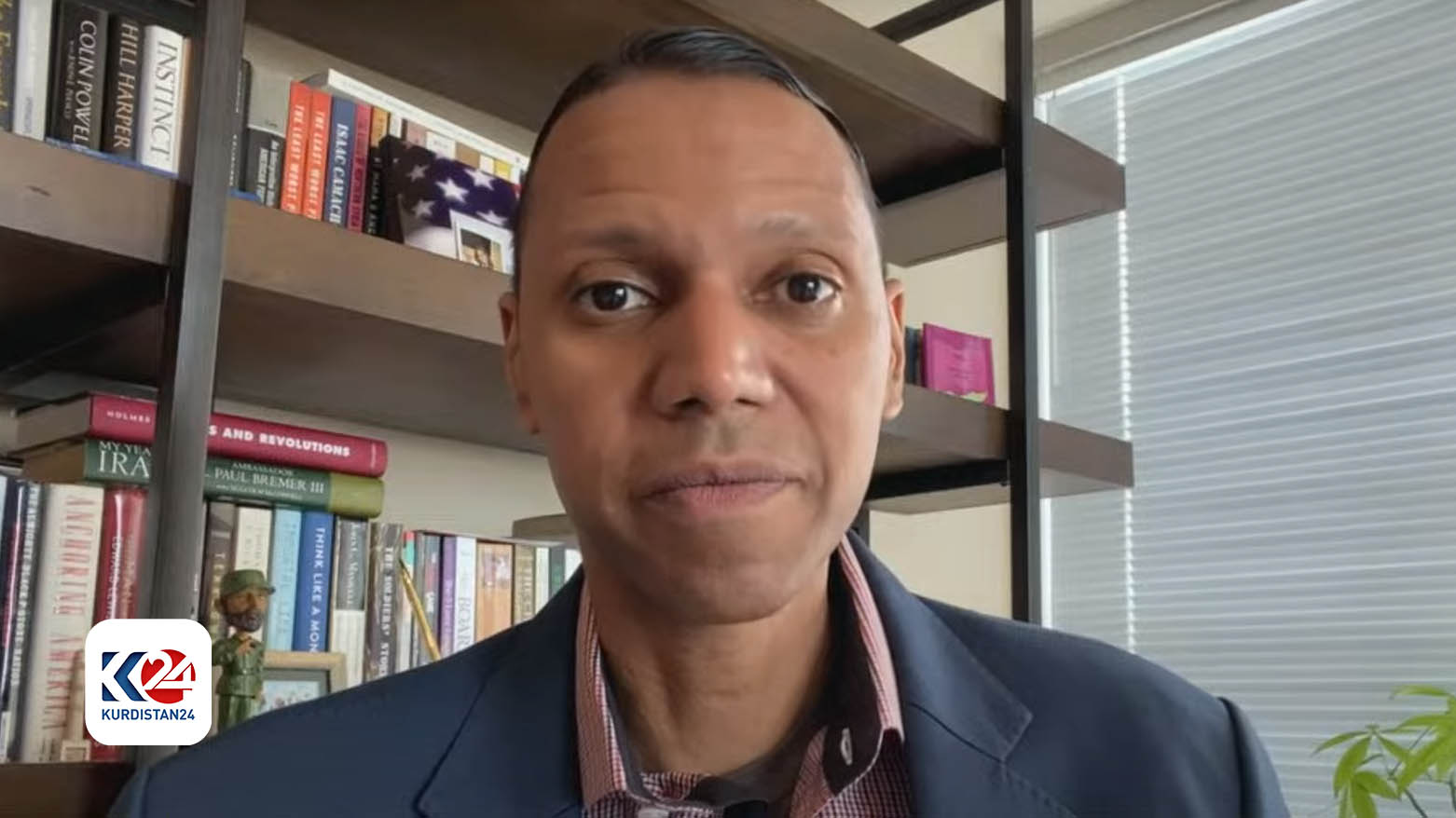Association of Oil Companies Calls for Resumption of Kurdish Oil Exports
“$19 billion has been lost, because the Iraq-Turkey pipeline has been closed" since March 2023. "We are waiting for Baghdad to take action, and that is what we want.”

WASHINGTON DC, United States (Kurdistan 24) –The Association of the Petroleum Industry of Kurdistan (APIKUR) has called for the resumption of the export of Kurdish oil, laying the blame for the continued stoppage squarely on Baghdad.
At the same time, a Kurdish member of the Iraqi Parliament, who sits on the Oil and Gas committee, explained that the real problem is that Iraq’s oil production is greater than its OPEC quota. Allowing Kurdish oil exports would compound that problem.
The Biden administration is aware of this problem, while it remains to be seen what it will do to address it.
Restarting Kurdish Oil Exports: $19 Billion Already Lost
Col. Myles B. Caggins III (US Army Retired), is a Spokesman for APIKUR. As an army officer, Caggins served three combat tours in Iraq, and he was spokesperson for the U.S.-led Global Coalition against ISIS, after it was established in 2014, with the terrorist group’s emergence in Syria during that country’s civil war, followed by its assault into Iraq.
Speaking to Kurdistan 24, Caggins stressed the importance of resuming Kurdish oil exports. They ended last year, following an adverse decision by the International Chamber of Commerces’ International Court of Arbitration in a lawsuit brought nine years before by a previous Iraqi government—under Prime Minister Nuri al-Maliki, a highly sectarian figure, who was obliged to resign in 2014 by the administration of Barack Obama.
Read More: U.S. ‘Urges Progress’ on Resuming KRG Oil Exports
Caggins told Kurdistan 24 that “a few months ago,” as Iraqi Prime Minister Mohammed Shi’a al-Sudani met with U.S. President Joe Biden, they “agreed that resolving” the issue of Kurdish oil exports through the Iraq-Turkey pipeline “is an important issue.”
Read More: U.S. Seeks to Broaden Ties with Iraq, as PM Sudani Makes First Visit to Washington
“That was months ago, and we are still waiting,” Caggins said, and “while we are waiting, the costs continue to go up and up and up. It is now $19 billion that has been lost.”
“$19 billion has been lost, because the Iraq-Turkey pipeline has been closed since the month of March 2023,” he added. “We are waiting for Baghdad to take action, and that is what we want.”
Iraq has a long history of oil exploration and exports—going back nearly 100 years—and Caggins noted that Baghdad has perfectly reasonable relations with major oil companies.
“We see that there are international oil companies, like BP and other companies that are working well with Baghdad, and we want the companies operating in the Kurdistan Region to be treated in the same manner,” he said.
Iraq Blocks Kurdish Oil Exports, Because Current Production Exceeds OPEC Quotas
Subsequently, Kurdistan 24 spoke with Sabah Subhi, a Kurdish member of the Iraqi parliament who is also on its Oil and Gas Committee.
“The Iraqi Ministry of Oil is obstructing all attempts to resume the export of oil from the Kurdistan Region,” Subhi stated. He attributed that to Iraq’s overproduction.
Its OPEC export quota is 3.6 million barrels of oil per day, and it is exceeding that by 1.4 million barrels, prompting repeated warnings from OPEC.
To allow the Kurdistan Region to resume oil exports would exacerbate that problem, as Kurdish oil would be counted within Iraq’s quota.
Read More: Iraq blocks Kurdistan Region oil exports to stay within OPEC quota, MP claims
Looking to the U.S.
Caggins suggested that the Iraqi Minister of Oil, Hayan Abdul Ghani, had been invited to Washington. “We’re still confirming the details, but if this is true, we think it is very important” for him to resolve the issue of the Iraq-Turkey pipeline, through which Kurdish oil is exported.
“APIKUR and our member companies will be in discussions with our friends in the Biden administration and Congress to ensure that any visit of Minister Ghani will include a discussion and update on the Iraq-Turkey pipeline,” he added.
In addition, as Caggins explained, the U.S. government “continues to be in close contact with the Government of Iraq and the KRG, and the new Consul General, Mr. Steven Bittner, in Erbil.”
Read More: U.S. Ambassador Welcomes New Consul General in Erbil
Bitner “is receiving updates on the issues related to the Iraq-Turkey pipeline,” Caggins continued, and “he will hear from members, representatives of companies, and APIKUR.”
Finally, Caggins explained the issue’s broader significance. “This also affects other countries and other oil companies—from Norway and Hungary and Canada and the UK.”
“We want Iraq to be a strong place for foreign investment, and getting the pipeline open will be a good signal to other industries, other businesses,” he concluded, so that they will “see Iraq as a place where contracts are honored and prosperity is possible, if the pipeline gets reopened.”